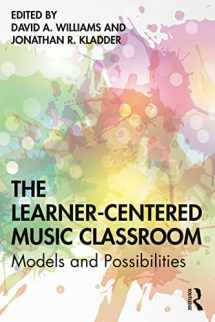
The Learner-Centered Music Classroom: Models and Possibilities
Book details
Summary
Description
The Learner-Centered Music Classroom: Models and Possibilities is a resource for practicing music teachers, providing them with practical ideas and lesson plans for implementing learner-centered pedagogical concepts into their music classrooms. The purpose of this book is to propose a variety of learner-centered models for music teaching and learning through the use of a variety of autoethnographic viewpoints. Nine contributors provide working and concrete examples of learner-centered models from their classrooms. Offering lesson plan ideas in each of these areas, the contributors provide practical approaches for implementation of learner-centered approaches in music instruction across a variety of landscapes.
Learner-centered teaching provides an approach to music education that encourages social, interactive, culturally responsive, creative, peer-based, open-formed, facilitated and democratic learning. Chapter 1 defines the what, why, and perceived benefits of learner-centered approaches in music teaching and learning contexts Chapters 2-10 will include example lesson plans, rubrics, etc. as models for teachers. The contributors to this book suggest that learner-centered approaches, when embedded into the culture and curricular framework of a music classroom, offer exciting approaches for teaching music in ways that are culturally and educationally appropriate in contemporary education.


We would LOVE it if you could help us and other readers by reviewing the book
Book review



